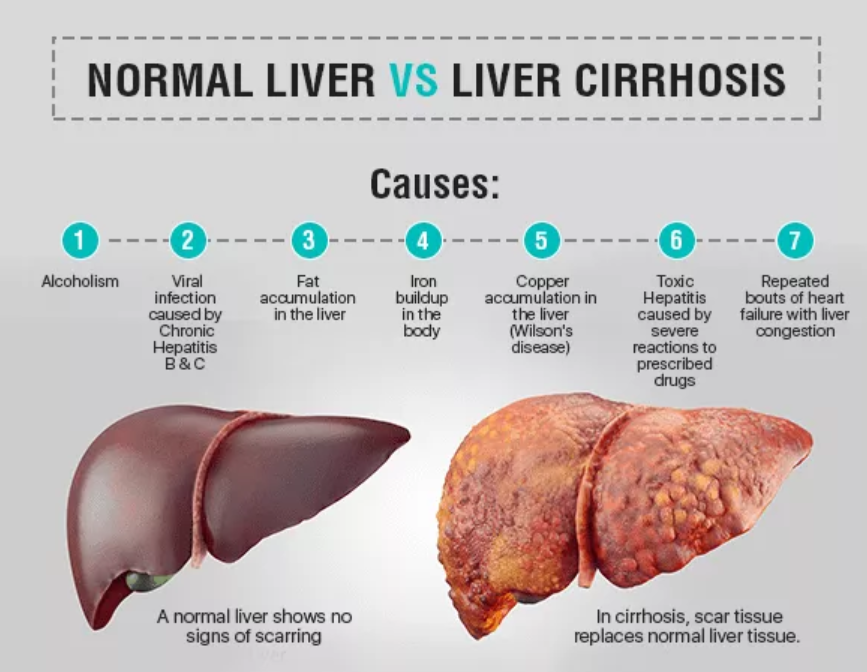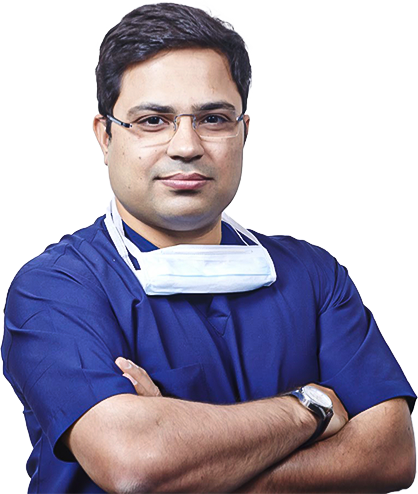
What is CLD Cirrhosis?
Cirrhosis is a liver condition caused from permanent damage or scarring of the liver. The damage can be caused by various reasons such as hepatitis, chronic Alcoholism, Fat Accumulation, etc. This scarring blocks the flow of blood through the liver making it difficult for the liver to function. Seeking timely medical care at the best hospital for liver cirrhosis in India can significantly improve long-term outcomes.
What are the Symptoms of CLD Cirrhosis?
- Fatigue, Nausea & Weakness
- Loss of Appetite
- Weight loss
- Fluid Accumulation in your Abdomen
- Yellow Discoloration in the Skin and Eyes (Jaundice)
- Easy Bruising & Bleeding
- Redness in hand palms
- Chest Enlargement in men
How is Cirrhosis diagnosed?
Although early stages of liver cirrhosis are asymptomatic, if you experience any of the above symptoms, you can get your routine blood test done. Following laboratory tests can infer any problems with your liver:
- Blood Tests for hepatitis B and C
- Tests for international normalized ratio (INR) for blood clotting
- Magnetic resonance elastography or transient elastography to detect any stiffening of the liver
- MRI, CT and ultrasound of the liver
- Liver biopsy
What is the treatment?
The treatment depends on the cause and extent of damage to your liver. The sole purpose of the treatment is to slow the progression of scar tissue in the liver. Hospitalization may be required in cases of severe liver damage. For early stages, doctors try to minimize the damage by treating the responsible factors such as treatment for alcohol abuse, weight loss, medications to control hepatitis and other symptoms. However, in advanced cases of cirrhosis, liver transplantation is required. Book your appointment with one of the top liver surgeons in India, Dr. Vivek Vij — widely recognized as the best doctor for liver cirrhosis in India.
Frequently Asked Questions:
1. What causes liver cirrhosis in most cases?
Ans. Liver cirrhosis is most commonly caused by chronic alcohol consumption, hepatitis B and C infections, and non-alcoholic fatty liver disease. Long-term liver inflammation or damage leads to scarring and impaired liver function.
2. Can liver cirrhosis be reversed?
Ans. While early stages of liver damage may be managed or partially reversed by treating the underlying cause, cirrhosis itself is generally not reversible. However, with timely treatment, its progression can be slowed or halted.
3. When should I consult a liver specialist?
Ans. You should consult a liver specialist if you experience symptoms like persistent fatigue, abdominal swelling, yellowing of the skin or eyes (jaundice), or unexplained weight loss. Early consultation increases the chances of managing the condition effectively.
4. How is liver cirrhosis treated?
Ans. Treatment focuses on managing the underlying cause, preventing further liver damage, and addressing symptoms. Options include medications, lifestyle changes, regular monitoring, and in severe cases, liver transplantation.




